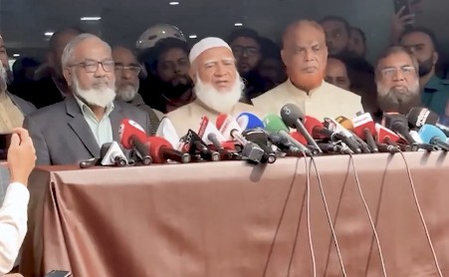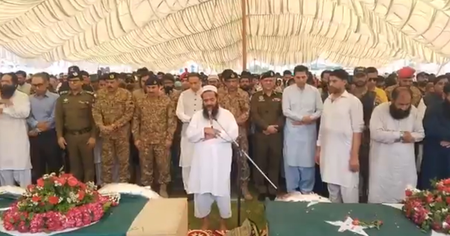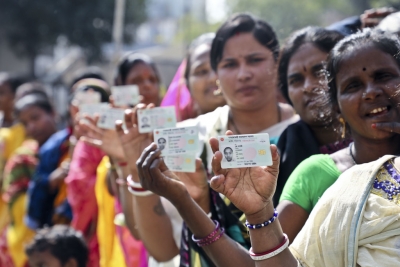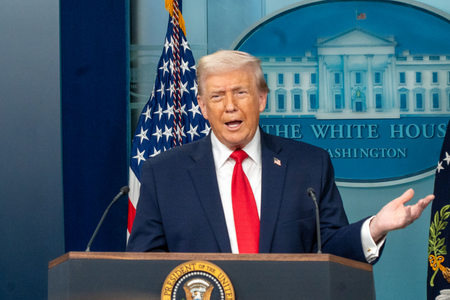
Washington, Feb 14 (IANS) Bangladeshis protested on Thursday near the White House demanding an end to the “unconstitutional” rule of Muhammad Yunus, the country’s interim leader.
The participants numbering about 150 at the protest organised by the Awami League and its sister organisations, raised slogans and held placards demanding justice and a return to constitutional rule.
They also demanded protection for minorities.
The protest took place ahead of US President Donald Trump’s meeting with Prime Minister Narendra Modi at the White House.
A spokesperson for the protesters alleged that Yunus took over the country with the help of “terrorists” endangering the security of the country.
He said that the “terrorist group doesn’t believe in a secular democracy” and the safety of minorities.
Yunus is creating an international “drama with false statements to the world leaders,” he said, adding that they wanted to show the true picture.
For holding the protest on Thursday, he said, “We want fairness, justice” and want to get the message across “especially (when) Donald Trump and PM Modi are here”.
“We want attention to taking the fear away and ensuring justice so people can practice their democratic rights,” he said.
“Our minority groups in Bangladesh, especially Hindus, have been attacked and so many have been killed,” he added.
Another spokesperson said, “Sheikh Hasina, according to our Constitution, is still the Prime Minister.”
Hindus, who make up about eight per cent of Bangladesh’s 170 million population, were heavily impacted by the violence.
The crisis has also raised increased concerns regarding religious and ethnic persecution in Bangladesh. Washington protesters condemned the increasing violence and accused Yunus of not being able to safeguard minority communities.
The Bangladeshi government, on the other hand, remains silent regarding the international condemnation and intervention calls. With tensions still high, international focus continues to be on the nation’s response to political and communal disturbances.
The protests reflected ongoing political unrest in Bangladesh after former Prime Minister Sheikh Hasina had resigned. The demonstrations also highlighted cases of religious minority violence in the nation. In a report by the United Nations Office of the High Commissioner for Human Rights, mass violence broke out in mid-2024 when protests by students over employment quotas compelled Hasina to resign and flee to India. The violence was said to have resulted in targeted attacks on Hindus and other minorities, with mobs burning down houses and places of worship.
–IANS
al/khz




